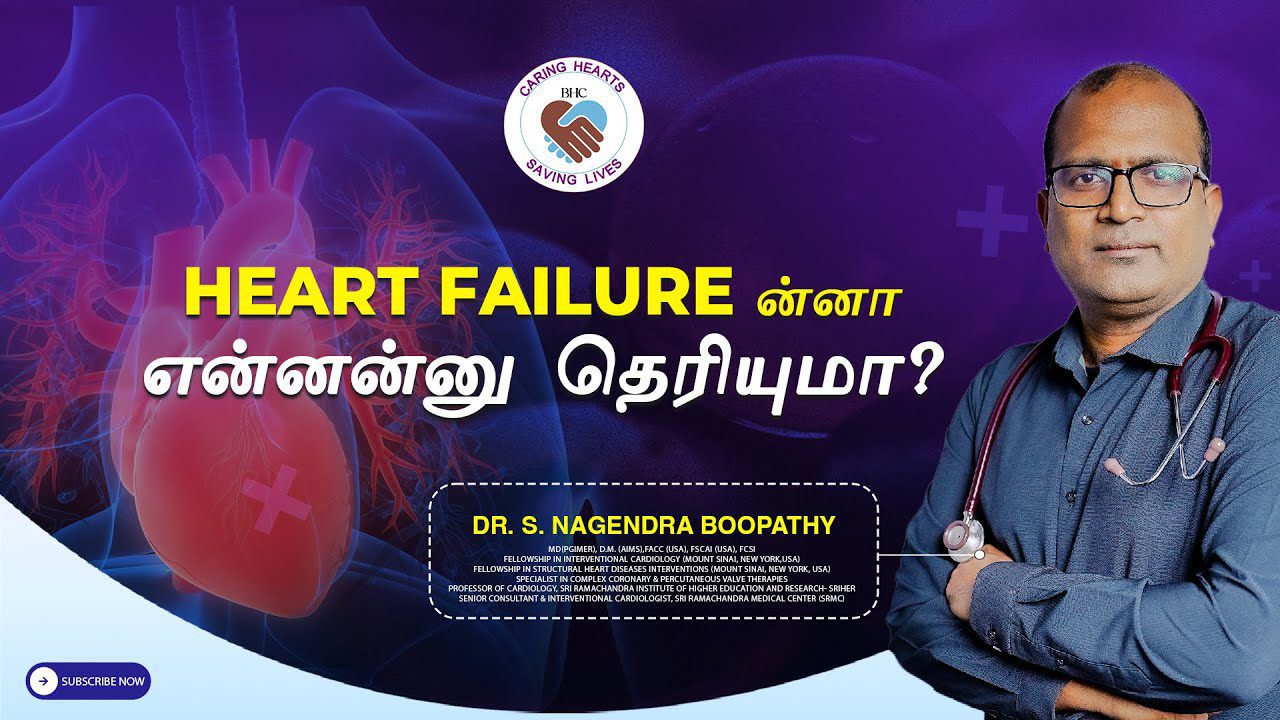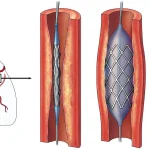Heart failure is a common yet serious medical condition affecting millions across the globe. Despite its prevalence, many people misunderstand what heart failure truly means and how it impacts the body. In this comprehensive guide, we delve into heart failure as explained by Dr. Nagendra Boopathy, a renowned cardiologist from Sri Ramachandra Medical College and Dr. Boopathy’s Heart Care in Chennai.
Heart failure is often a misunderstood term, sometimes evoking unnecessary fear. However, understanding the condition, its causes, symptoms, diagnosis, and treatment can empower patients and caregivers to manage it effectively and improve quality of life.
Table of Contents
- What is Heart Failure?
- Common Causes of Heart Failure
- Recognizing the Symptoms of Heart Failure
- Diagnosing Heart Failure
- Treatment Approaches for Heart Failure
- The Importance of Early Detection and Treatment
- Frequently Asked Questions (FAQ)
- Conclusion
What is Heart Failure?
Heart failure is a condition where the heart is unable to pump sufficient blood to meet the body’s needs. This does not mean the heart has “failed” completely, but rather that it is failing to perform its pumping function optimally. The heart’s primary role is to circulate oxygen-rich blood throughout the body, ensuring all organs and tissues receive adequate oxygen and nutrients.
The heart consists of two main sides: the right and the left. The right side receives oxygen-poor blood from the body and pumps it to the lungs for oxygenation. The left side then pumps the oxygen-rich blood to the rest of the body. Heart failure can arise when either side or both sides of the heart cannot pump efficiently.
The Two Main Types of Heart Failure
Heart failure mainly occurs due to two reasons:
- Reduced Pumping Capacity (Systolic Dysfunction): This is when the heart muscle weakens and cannot contract effectively to pump blood. This is often called “Heart failure with reduced ejection fraction” (HFrEF).
- Preserved Pumping Capacity but Impaired Filling (Diastolic Dysfunction): Here, the heart muscle becomes stiff or thickened, leading to inadequate filling of blood into the heart chambers despite a normal pumping function. This is known as “Heart failure with preserved ejection fraction” (HFpEF).
Both conditions result in reduced blood flow to the body, causing symptoms and complications associated with heart failure.
Common Causes of Heart Failure
Heart failure can develop due to multiple underlying causes. Dr. Boopathy highlights two prominent reasons:
1. Coronary Artery Disease (CAD)
One of the most significant causes of heart failure is coronary artery disease. This condition involves the narrowing or blockage of the coronary arteries, which supply oxygen-rich blood to the heart muscle. When these arteries are blocked due to atherosclerosis (fatty deposits), parts of the heart muscle receive insufficient oxygen, leading to damage and weakening of the heart muscle.
CAD is a major contributor to reduced pumping capacity and eventually heart failure.
2. Heart Valve Disorders
The heart contains four valves that regulate blood flow through its chambers. These valves must open and close properly to maintain efficient blood flow. Valve problems can be of two types:
- Stenosis: When a valve does not open fully, restricting blood flow.
- Regurgitation: When a valve leaks, allowing blood to flow backward.
Valve dysfunction forces the heart to work harder, leading to weakening and eventually heart failure.
Other Causes of Heart Failure
Several other factors can contribute to heart failure, including:
- Cardiomyopathy: Diseases of the heart muscle that cause it to thicken, enlarge, or become stiff. Dilated cardiomyopathy, where the heart muscle thins and stretches, is a common cause.
- Myocarditis: Inflammation of the heart muscle often caused by viral infections, which can weaken the heart.
- High blood pressure (hypertension): Long-standing high blood pressure forces the heart to pump against increased resistance, leading to hypertrophy (thickening) and eventually failure.
- Other conditions: Such as diabetes, obesity, thyroid disorders, and excessive alcohol consumption.
Recognizing the Symptoms of Heart Failure
Early recognition of heart failure symptoms is critical for timely diagnosis and treatment. Dr. Boopathy emphasizes that heart failure presents with a range of symptoms that may worsen progressively.
Common Symptoms Include:
- Shortness of breath (Dyspnea): This is the most common and significant symptom. It may occur during physical activity, at rest, or while lying down. Patients often notice difficulty breathing when lying flat, leading them to sleep propped up on pillows or sit up at night due to sudden breathlessness.
- Fatigue and Weakness: Reduced blood flow to muscles causes patients to feel tired even after minimal exertion.
- Swelling (Edema): Fluid accumulation, especially in the legs, ankles, and abdomen (ascites), is common due to poor circulation and fluid retention.
- Abdominal Discomfort: Pain or discomfort in the right upper abdomen may occur due to liver congestion from heart failure.
- Rapid or Irregular Heartbeat: Palpitations may arise as the heart struggles to maintain adequate circulation.
- Persistent Cough or Wheezing: Coughing up white or pink blood-tinged mucus can be a sign of fluid buildup in the lungs (pulmonary edema).
The severity of symptoms varies depending on the stage of heart failure. Symptoms that occur with minimal activity or at rest indicate more advanced disease and require urgent medical attention.
Acute vs. Chronic Heart Failure
Heart failure can present suddenly or develop gradually:
- Acute Heart Failure: This occurs suddenly, often triggered by events like heart attacks or severe infections. Symptoms appear rapidly and require immediate treatment.
- Chronic Heart Failure: This develops over time due to ongoing heart damage or conditions like hypertension and valve disease. Symptoms worsen slowly and can be managed with proper care.
Diagnosing Heart Failure
Once symptoms suggest heart failure, a thorough evaluation is essential to determine the cause and severity. Dr. Boopathy outlines the common diagnostic tools used:
1. Blood Tests
Blood tests can detect markers of heart stress and other contributing factors like kidney function, electrolytes, and thyroid status.
2. Electrocardiogram (ECG)
An ECG records the electrical activity of the heart and helps identify arrhythmias, previous heart attacks, or other abnormalities.
3. Echocardiogram (Echo)
This is a key diagnostic test that uses ultrasound to visualize the heart chambers, valves, and pumping function. It helps determine the ejection fraction (a measure of how well the heart pumps) and identify valve problems or heart muscle abnormalities.
4. Additional Tests
Depending on the case, further tests like chest X-rays, stress testing, cardiac MRI, or coronary angiography may be needed.
Treatment Approaches for Heart Failure
Heart failure is a chronic condition requiring lifelong management. The goal of treatment is to improve symptoms, slow disease progression, enhance quality of life, and reduce mortality.
Medications
Dr. Boopathy stresses the importance of four main classes of medications that have proven benefits in heart failure with reduced ejection fraction:
- ACE Inhibitors or ARBs: These help relax blood vessels, reduce blood pressure, and decrease the heart’s workload.
- Beta-Blockers: These slow the heart rate and reduce harmful effects of stress hormones on the heart.
- Diuretics: Often called water pills, they help remove excess fluid from the body, reducing swelling and breathlessness.
- Mineralocorticoid Receptor Antagonists (MRAs): These medications help prevent fluid retention and improve heart function.
Adherence to these medications as prescribed is crucial for long-term improvement.
Lifestyle Modifications
Alongside medications, lifestyle changes greatly benefit heart failure patients:
- Diet: Limiting salt intake helps reduce fluid retention.
- Fluid Restriction: In some cases, limiting fluids may be necessary.
- Exercise: Tailored physical activity improves heart health and endurance.
- Weight Monitoring: Daily weight checks help detect fluid buildup early.
- Avoiding Alcohol and Smoking: Both worsen heart function.
Advanced Therapies
In severe cases, additional interventions may be required:
- Implantable Devices: Such as pacemakers or defibrillators to regulate heart rhythm.
- Surgery: Valve repair or replacement, coronary artery bypass grafting (CABG), or heart transplant in select patients.
- Cardiac Rehabilitation: Supervised programs to improve heart function and patient well-being.
The Importance of Early Detection and Treatment
Heart failure has a high mortality rate if left untreated. According to studies like the National Heart Failure Registry, up to 15-20% of patients with untreated heart failure may die within a year. This stark statistic underlines the need for early diagnosis and comprehensive treatment.
Proper management can significantly improve survival rates and quality of life. Patients who follow medical advice and take prescribed medications regularly often experience symptom relief, fewer hospitalizations, and better long-term outcomes.
Frequently Asked Questions (FAQ)
Q1: Is heart failure the same as a heart attack?
A: No. A heart attack occurs when blood flow to a part of the heart muscle is blocked suddenly, causing damage. Heart failure is a chronic condition where the heart’s ability to pump blood is reduced, which can be caused by heart attacks among other factors.
Q2: Can heart failure be cured?
A: Heart failure is usually a chronic condition that requires ongoing management. While it may not be completely cured, symptoms can be controlled, and progression slowed with proper treatment and lifestyle changes.
Q3: What should I do if I experience symptoms of heart failure?
A: If you experience symptoms like unexplained shortness of breath, swelling in legs, fatigue, or chest discomfort, consult a healthcare provider promptly for evaluation.
Q4: Are there any preventive measures for heart failure?
A: Yes. Controlling risk factors such as high blood pressure, diabetes, obesity, and avoiding smoking and excessive alcohol can reduce the risk of developing heart failure.
Q5: How important is medication adherence in heart failure?
A: Medication adherence is critical. The four main classes of drugs prescribed for heart failure have been shown to improve survival and reduce hospitalizations when taken consistently as directed by your doctor.
Conclusion
Heart failure is a complex but manageable condition. Understanding its causes, recognizing symptoms early, and seeking timely medical care can make a life-saving difference. Thanks to advances in cardiology, patients today have access to effective treatments that improve heart function and quality of life.
Dr. Nagendra Boopathy’s insights help demystify heart failure and encourage patients not to fear the diagnosis but to face it with knowledge and proactive care. If you or someone you know exhibits symptoms of heart failure, consult a cardiologist promptly. Early intervention can help you live a healthier, more active life.
Remember, heart failure is not the end — with the right treatment and lifestyle changes, you can take control of your heart health and thrive.
For more trusted information on heart health and cardiology, stay informed and consult your healthcare provider regularly.
Dr. S Nagendra Boopathy
Schedule an Appointment:
- Link: Schedule Here
- Instructions: Select the date and time below to schedule an appointment.
For Appointment Confirmation and Follow-Ups, Please Contact:
- 9 AM – 4 PM: +919360438720
- 6 PM – 8 PM: +918754498680
Ensure all details are verified after scheduling your appointment.




